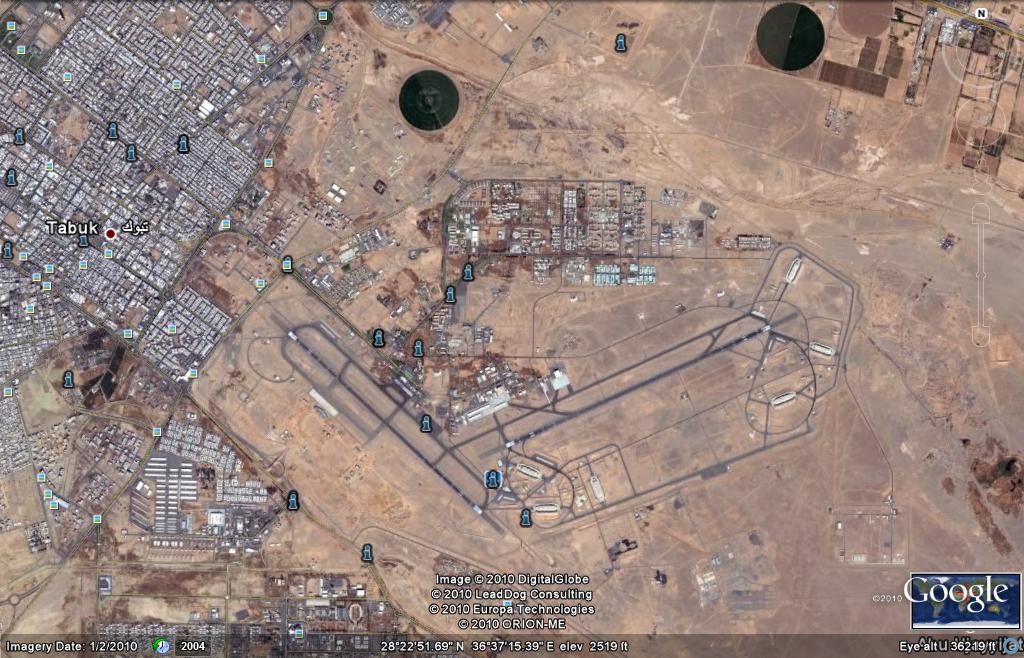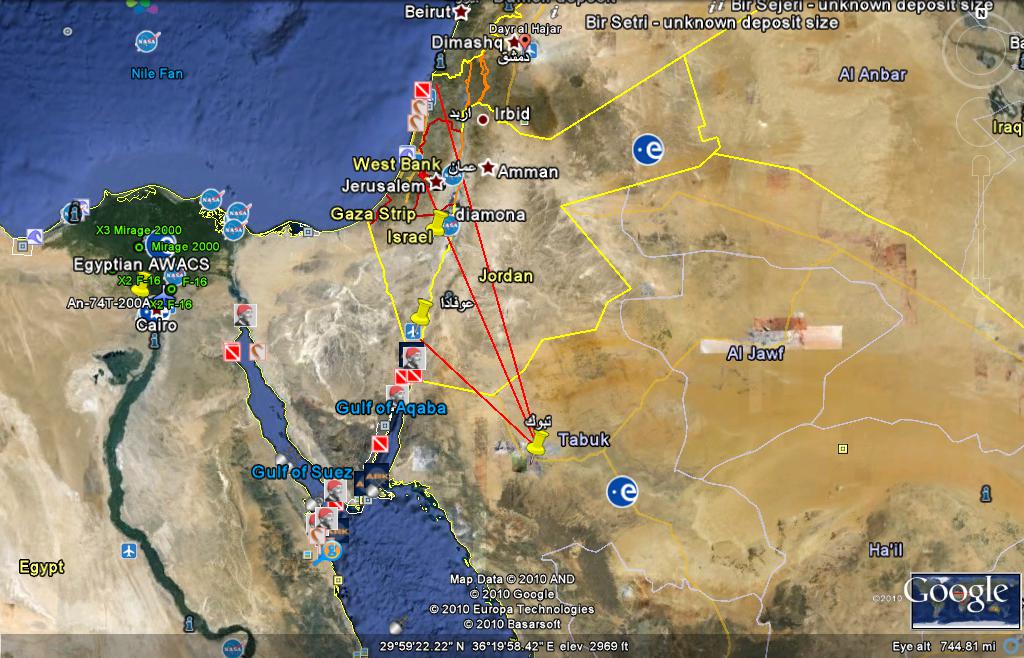السعوديه تنوى نشر مقاتلات التايفون فى قاعدة تبوك
S E C R E T SECTION 01 OF 02 TEL AVIV 002500
SIPDIS
E.O. 12958: DECL: 11/17/2019
TAGS:
PREL PGOV MOPS PTER EG CH IR RU SA LE TU IS
SUBJECT: 40TH JOINT POLITICAL-MILITARY GROUP: EXECUTIVE
SESSION (PART 1 OF 4)
Classified By: A/DCM Marc Sievers, reasons 1.4 (b,d)
¶1. (S) Summary: During the Executive Session of the 40th
Joint Political Military Group (JPMG), U.S. and Israeli
counterparts continued discussion on the creation of four new
Qualitative Military Edge (QME) working groups. GOI
interlocutors continued to raise concerns regarding the F-15
sale to Saudi Arabia. Both sides agreed that continued
pressure be applied to Iran, especially following the
disclosure of the nuclear facility in Qom. GOI participants
expressed concern regarding Chinese and Russian cooperation
with respect to enhanced Iranian sanctions. The GOI also
raised dual citizenship concerns with respect to access to
sensitive technology, and noted from its perspective Turkey's
disturbing change of course toward Syria and Iran -- and away
from Israel. This is the first in four cables (septels)
reporting on the JPMG. End summary.
¶2. (SBU) Israeli Participants:
-- Brigadier General (res) Pinchas Buchris, MOD Director
General
-- Major General (ret) Amos Gilad, MOD Political-Military
Chief
-- Brigadier General Ronen Dan, acting Israeli Defense
Attache to the United States
-- Gad Dovev, Director, MOD Mission, New York
-- Alon Bar, MFA Deputy Director General for Strategic Affairs
-- COL Shimon Arad, IDF J5
-- Rami Yungman, MOD Political-Military Bureau
-- Schmuel Royter, Assistant to the MOD Director General
U.S. Participants:
-- Andrew Shapiro, Assistant Secretary of State, Bureau of
Political-Military Affairs
-- Luis Moreno, Deputy Chief of Mission, U.S. Embassy Tel Aviv
-- Dr. Colin Kahl, International Security Affairs, Deputy
Assistant Secretary of Defense
-- Brigadier General Jefforey Smith, Joint Staff
-- Prem Kumar, Director for Israeli, Palestinian, Egyptian
and Jordanian Affairs, NSC
-- Tom Goldberger, Director for Israel and Palestinian
Affairs, Bureau of Near Eastern Affairs
-- COL Richard Burgess, Defense Attache, U.S. Embassy Tel Aviv
Qualitative Military Edge
-------------------------
¶3. (S) The Executive Session continued discussion from the
September 30 Qualitative Military Edge (QME) meeting in
Washington.
Both sides presented their primary points of
contact for the four newly proposed working groups focusing
on previous agreements, mitigation measures for the F-15 sale
to Saudi Arabia, technical mitigation issues, and
intelligence/policy. Agreement was reached to begin working
on the details of each working group's meeting schedule and
timeline.
¶4. (S) The GOI continued to express concern over the F-15
sale to Saudi Arabia. U.S. participants noted that the USG
is unable to provide more detailed information about the sale
until Saudi Arabia officially sends a Letter of Request
(LOR). The GOI expressed additional concerns about
stationing these new aircraft at Tabuk airfield in the
northwest corner of Saudi Arabia -- close to the Israeli
border. U.S. participants stated the USG understanding that
this should not be an issue, as the Saudis are considering
stationing new Typhoon aircraft at Tabuk. The GOI also
raised AMRAAM sales to Jordan; U.S. participants explained
that the new C-7 AMRAAM is an export version with
capabilities similar to the C-5 version -- and therefore
provides little to no increase in capabilities.
Iran, China and Russia
----------------------
¶5. (S) Both sides expressed concern over the recent
revelation regarding Iran's nuclear facility at Qom, and
agreed that increased pressure should be applied directly and
internationally against Iran in order to better determine
Tehran's motives and next steps. Both sides agreed that the
facility at Qom should be inspected immediately. One member
of the Israeli delegation expressed the opinion that some
consideration be given to "shutting Qom operations down
completely" to prevent further progress on obtaining a
nuclear weapon. That said, the GOI argued that the
international community not become bogged down on the Tehran
Research Reactor (TRR) and Qom, thereby diverting focus from
TEL AVIV 00002500 002 OF 002
the bigger issue of Iran's nuclear program.
¶6. (S) Several questions were raised about China's position
on Iran's efforts to acquire a nuclear weapon. Both sides
agreed that continued engagement with China and Russia is
needed -- as well as building a consensus in Europe. The USG
speculated, and the GOI concurred, that China will follow
Moscow's lead. USG participants argued that China would seek
to avoid an international confrontation over Iran. The GOI
described 2010 as a critical year -- if the Iranians continue
to protect and harden their nuclear sites, it will be more
difficult to target and damage them. Both sides then
discussed the upcoming delivery of GBU-28 bunker busting
bombs to Israel, noting that the transfer should be handled
quietly to avoid any allegations that the USG is helping
Israel prepare for a strike against Iran.
¶7. (S) The GOI made the case for "crippling sanctions";
cooperation between the United States, Europe, Russia and
China will be necessary in order for these sanctions to be
effective. U.S. participants stressed the USG position that
any discussions with Iran on this subject be finite; the USG
will continue to monitor whether negotiations are making
progress. The GOI stated that it is not convinced the
Iranians will negotiate in good faith unless there are
visible and clear threats. U.S. delegation members described
eight lanes of sanctions, and outlined a plan to "pivot to
apply appropriate pressure" on those points and tracks that
have the most impact. U.S. participants concurred that 2010
is a critical year -- but the continued application of
pressure is vital.
¶8. (S) Regarding Russia, the GOI was not confident that
Moscow will be helpful in any Iranian sanctions effort -- GOI
participants opined that Russia is considered a "mystery"
with respect to their views on Iran. The GOI raised the
Russian S-300 sale to Iran, noting that the transfer is still
pending. GOI participants argued that Moscow seeks a return
to superpower status, but there are contradictory trends
regarding Russia's internal condition.
Dual Citizenship Issues
-----------------------
¶9. (S) The GOI raised the issue of dual citizenship within
the context of access to sensitive technology. U.S.
participants acknowledged Israeli concerns, noting that the
issue is being worked at the highest levels of the USG to
reach consensus on how to proceed. The GOI recommended
obtaining a waiver similar to the relationship from which
Canada or Australia benefit.
Turkey
------
¶10. (S) The GOI raised the current direction the Government
of Turkey has taken toward Syria and Iran -- and away from
Israel. Israeli participants argued that Turkey has been
supportive of Hamas in Gaza while pursuing a more "Islamic"
direction with the goal of becoming a regional superpower.
The GOI argued that the Turkish military is losing its
ability to influence government decisions and strategic
direction. After this past year, GOI participants said they
have a "bad feeling" about Turkey. The GOI noted that the
Israel Air Force (IAF) Commander in the past wanted to speak
to the Turkish Air Force Commander, but his Turkish
counterpart declined.
¶11. (U) A/S Shapiro has cleared on this cable.
CUNNINGHAM
هذه الوثيقه نشرت فى موقع ويكيلكس
وهى بالأساس تتكلم عن الصفقه السعوديه
ذات ال60 مليار دولار زطلب إسرائيل الإطلاع على التفاصيل
الخاصه بالصفقه
والقلق الإسرائيلى إن السعوديه تضع مقاتلات الأف15 فى قاعدة تبوك وتدرس السعوديه أيضآ نشر التايفون فى تبوك
واشارت لصواريخ الإمرام للأردن
وانها نسخه تصديريه مخفضة المعايير
كما تكلمت عن التحالف الإستراتيجى بين الولايات المتحد وإسرائيل
وعن عقد إجتماعان سنويآ للإستخبارات العسكريه بين امريكا وإسرائيل لمناقشة
أمور المنطقه والتعاون على حفاظ إسرائيل على التفوق النوعى فى مجال التسلح
على دول المنطقه
وان الأسلحه التى ستورد للعرب نسخ تصديريه ومخفضة المميزات
وشراء إسرائيل أسلحه وقنابل حديثه مع الولايات المتحده
ولكن ما يهمنى فى الوثيقه أنها تتحدث على ان المملكه العربيه السعوديه تتضع مقاتلات الأف15 فى
قاعدة تبوك وتنوى وضع مقاتلات التايفون بها
وهذا ما يقلق إسرائيل
وإليكم لماذا تخشى إسرائيل من ذلك
فقاعدة تبوك قاعدة كبيرة وذات تجهيزات متقدمه جدآ
وتعتبر أقرب القواعد السعوديه الكبيره لإسرائيل
حيث تبعد عن إيلات 200كم
وتبعد عن قاعدة عوفادا 230كم
وتبعد عن تل أبيب 430كم
وتبعد عن حيفا فى أقصى شمال إسرائيل 470كم وهذا يعنى أن السعوديه بأمكانها أن تطول كل الأراضى الإسرائيليه من هذه القاعده





